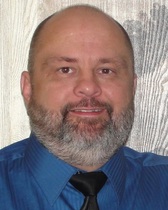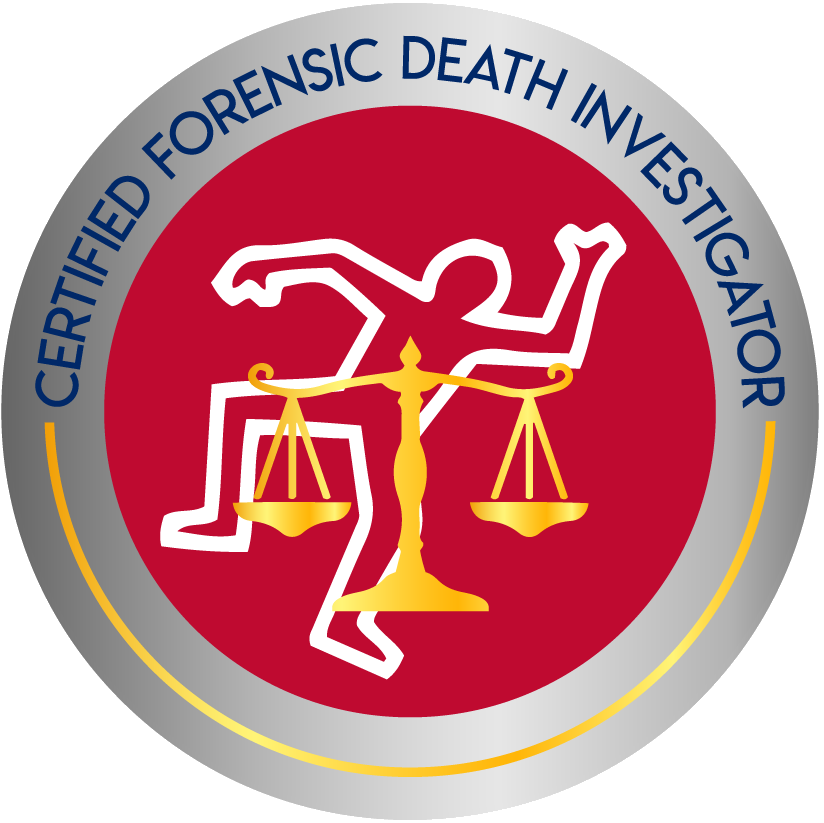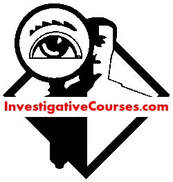
I can't be credited with this quote, it is one of my favorite bad quotes against PI licensing in Colorado, and is one of the very reasons that all professional investigators in Colorado should opt to be licensed - no guessing games for the potential client.
With the program now in place, and licenses active as of July 1st, I thought I would put pen to paper, sort of, and share some experiences on the process Colorado went through and why. Specifically, what are the inherent good and bad of professional oversight – be it regulation, registration or licensing. The new law serves the purpose of that quote – it gives the potential client a resource, and the professional investigator an option.
With Colorado's unique volunteer licensing program, why did we choose to be licensed?
-- To demonstrate that we are vetted by the Colorado Department of Regulatory agencies (4,000 hours of experience is verified and all must pass a fingerprint CBI criminal records check)
-- Eases the burden of qualification on attorneys and other clients
-- For consumer protection (being licensed in another state offers no consumer protection in Colorado, but was necessary to PIs for records access and credibility before this program)
-- For continued access to records and databases (exceptions are increasingly more common to be given to those licensed within the states they do business)
-- To be on an equal plane as our licensed investigator colleagues
-- For the recognition and distinction that licensing provides
I have been an investigator for nearly 25 years, it is the greatest profession and I am glad we are all experiencing it together. I have been active in legislative issues as the current Board Chairman of the Professional Private Investigators Association of Colorado (PPIAC) and the 5A Regional Director for the National Council of Investigation and Security Services (NCISS). I have said many times that investigators should join and support their state association for the education, networking and legislative efforts; as well as a national association for the same reasons – PPIAC does that for me in Colorado, and the other state memberships we hold. For me, NCISS, fits the bill to watch the federal hands always trying to poke and prod at our profession. NCISS also supports state associations in these efforts. This relationship, between members and their state and national associations, are why we are still in business.
What can put us out of business? Government regulation – and that presents a slippery slope. What can keep us in business? Self-regulation through shaping government regulation and legislation. Colorado was the first state in the country to have a licensing law; and it was the first law to be passed by the legislature after becoming a state in 1876; passing in the 1877 legislative session. 100 years later, in 1977, that law was declared unconstitutional due to lack of clear definition. There is actually a more accurate political story to this, but I’ll save that for another day. The lack of a definition is important. Following that the PPIAC was formed by three concerned private investigators and friends, for the purpose of seeing licensing return to Colorado. This was not because anyone was fond of licensing, but because at that time it was known what impact no licensing would have. In short – the lack of regulation invites unwanted (and often unwarranted) regulation by governing authorities; de facto regulation. There were no protections to our profession or us as individual practitioners of our craft. It took nearly a dozen attempts, all quite unsuccessful; we are the independent old west ya’ll. In 2011, after 34, years that changed. There was a lot asked for and a lot taken away in the process. Some feel we lost mandatory licensing, but what was asked for was voluntary – we could not find support in our profession for mandatory, and in particular we could not find a bill sponsor in the legislature. This is the beginning of self-regulation through shaping government regulation and legislation. What was accomplished is definition and credibility. All potential clients will know that a private investigator opting to be voluntarily licensed in Colorado has at least 4,000 hours of experience in the most recent five years and has cleared a fingerprint background check conducted by the Colorado Bureau of Investigation. Moreover, if that investigator is also a member of the Professional Private Investigators Association of Colorado, they were accepted only after having agreed to a complete background investigation. No other association in Colorado supports professional licensing and/or conducts their own background checks on member applicants. PPIAC has members that do not qualify for licensing, and some that choose not to be licensed – potential clients are still selecting from a pool that has been subjected to the background investigation.
Voluntary licensing in Colorado still maintains the component of being self-regulated – it is a choice, and choices have benefits. By crafting protective legislation for our profession, small steps might accomplish more than big steps. As an association we fought very hard for the new licensing program – as both a consumer protection and, more important to those of us that want to be in business – our own protection. If we are not in business, what protection does the consumer need and who is going to protect them? Those were my two arguments during testimony before various legislative committees and hundreds of letters to our legislators.
One of the issues persistently presenting itself is privacy protection. Often this is a knee jerk reaction to someone, usually of financial and/or political influence, that has felt slighted. Moreover, this is often unrelated to our work and profession, but we pay for it. As an example, let’s look at Florida’s Earnhardt Law. This was passed in Florida after the autopsy photographs of Dale Earnhardt were released to the press. It is known how they were released, which was unrelated to our profession, but professional investigators are paying for it. Autopsy photographs can only be released to law enforcement, next-of-kin or by court order. Our agency consults as subject matter experts on death and injury causation, including cases from Florida. Unfortunately, there have been a few hiccups. Specifically, if there is an equivocal death in which the spouse is suspected in the death, there will be no autopsy photographs provided. Sure, a court order can be obtained, but that pretty much throws out any discreet investigation. Florida is not the only state, and in some even the once public record autopsy report is no longer public. There is no exemption for licensed private investigators or legal proceedings, such as might be found under the federal and state Drivers Privacy Protection Acts. You have to obtain permission from the next-of-kin. Kind of self-defeating when trying to protect the consumer, or in this case the decedent and surviving family, but not next-of-kin. I guess the various legislators never heard of Black Widows or male counterparts.
In April of 2010 I was retained as an expert to testify in Colorado regarding professional ethics of private investigators. The attorney and I had several conversations about this and some potential road blocks, such as no licensing in Colorado. We thought it was well planned out, until the presiding judge threw a curve ball. He would not allow testimony on the ethics of private investigators…because…in a state with no definition there could be no regulation, and therefore no ethical considerations. That was both an insult and inaccurate. I think we can all see the insult, but what was inaccurate? All professional investigators that work for attorneys are the agents of the attorneys; that was my investigation, opinion and planned testimony. I was not part of that hearing, but I did later read the transcript. We salvaged my testimony by simply providing expert opinions on the protocols of private investigation. The judge was correct in that you cannot regulate a profession that has no regulatory parameters, if that would have been his ruling. We used this information in our legislative efforts, and continue to do so today. Simply put, you cannot exempt or include a private investigator in a statute that does not define one. You cannot define a private investigator if there are no regulations. If Joe Citizen can print business cards to be a PI, how can you protect the public when they are – by lack of definition – capable of saying they are a PI? Ergo, legislation can now be focused on the definition of a private investigator.
During the legislative process we were also very persistent that to define a private investigator is not enough, but that a licensed private investigator must be defined. My reasoning in introducing this was to: 1) strengthen the current bill for voluntary licensure; and 2) strengthen future legislation for exemptions by defining a licensed private investigator. The reasoning was simple, if anyone could legally be a private investigator, only those having obtained a license have demonstrated the experience and clear background to have earned and be entitled to such exemptions. Moreover, if you read various state and federal laws that impact our profession, more and more are introducing exemptions as being for ‘licensed private investigators’ and not ‘private investigators’. Now that Colorado has a licensing program, though not active until July 01st, PPIAC has already taken action on bills. We introduced a bill that put Colorado in line with the federal Drivers Privacy Protection Act. This bill passed the full legislative process just today and has been signed by the governor. No more having an out-of-state license, or carrying state business filing documents, or other forms of proof that we fall under the private investigator exemptions. Now that we have a licensing program, we can better position private investigators and working with clients. One method is by an exemption amendment to potentially infringing legislation – exempting the now defined ‘licensed private investigator’. Exemptions are not possible for the undefined, and only regulation can define a profession. Hobbies, for the most part those not income based, are not regulated.
Once there is a form of oversight and definitions, exemptions can be requested in existing and introduced legislation. It may often be more advantageous to have an exemption than fight to kill legislation. One example in Florida is the tinted window exemption for private investigators. The most common need for exemptions are with records due to privacy concerns. A basic template that can be used for nearly all legislation is based upon access to records. What does not work is asking for our profession to have a special status, but to instead share with other entities that have the same concerns and would support a common effort. This has historically been accomplished by affidavit or other attestation similar to the Driver’s Protection Privacy Act, Fair Debt Collection Practices Act, Graham Leach Bliley, US Postal regulations, etc.:
- By a government agency, law enforcement agency, or court performing a government function.
- By a business that will use the information to verify the accuracy of information submitted by individuals, for purposes of preventing fraud, pursuing legal remedies, against or recovering on a debt or security interest.
- In connection with a civil, criminal, administrative or arbitral proceeding in any court or before a self-regulatory body, including process service, investigation, execution of judgment or pursuant to court order.
- By an insurer or insurance support agency in connection with claims, investigations, anti-fraud activities, rating or underwriting.
- To protect against or prevent actual or potential fraud, unauthorized transactions, claims, or other liability.
- To comply with Federal, State, or local laws, rules and other applicable legal requirements.
- By a licensed private investigative agency for one of the listed approved purposes.
- I have attached a written consent of the person whose record I am requesting.
The licensing program in Colorado is voluntary – it is a choice – and a professional credential that tells potential clients that they are choosing from a pool of experienced investigators that have subjected themselves to a background check. This is more important than one recently heard anti-licensing position.
You can apply for your Colorado license by visiting the Colorado Department of Regulatory Agencies - http://www.dora.state.co.us/private-investigator/index.htm or download the full packet from http://licensing.ppiac.net. You do not need to be a resident or be based in Colorado. This is perfect for those having work in Colorado, based in Colorado, or in one of the few remaining states without a licensing program.
Karen and I applied for our Colorado Voluntary Private Investigator licenses. We have both been approved, active July 1st, and you can view our respective approvals at:
Beers, Karen S (PI-502)
https://www.doradls.state.co.us/alison.php?action=COMPDETAIL&ind=true&soboard=9999&lickey=MjQ5NzQ2Mg==&t_o_p=
Beers, Dean Alan (PI-503)
https://www.doradls.state.co.us/alison.php?action=COMPDETAIL&ind=true&soboard=9999&lickey=MjQ5NzQ2MA==&t_o_p=
==========
© Dean A. Beers, CLI, CCDI – Associates in Forensic Investigations, LLC – 05/2012
Dean A. Beers, CLI, CCDI is a Certified Legal Investigator and Certified Criminal Defense Investigator, and subject matter expert in criminal defense homicide and civil equivocal death investigations. He is certified in Medicolegal Death Investigations and is a POST certified instructor, and has served as a forensic autopsy assistant. He has lectured extensively and authored multiple articles, peer-reviewed white papers, and provided expert testimony on Protocols of Private Investigation, and Forensic Investigation of Injury Pattern Analysis, as well as consulted as a subject matter expert in Equivocal Death Analysis, Injury Causation, Time of Death, Crime Scene Analysis, Investigative Protocol, Evidence Protocol, and Forensic Photography.
He authored Practical Methods for Legal Investigations: Concepts and Protocols in Civil and Criminal Cases, released by CRC Press in February 2011, and previously Professional Investigations: Individual Locates, Backgrounds and Assets & Liabilities.
He founded his agency in 1987 and operates it with his wife Karen S. Beers, BSW, CCDI, with whom he co-developed Death Investigation for Private Investigators online continuing education for 14 states.
Mr. Beers is the Board Chairman of the Professional Private Investigators Association of Colorado, Region 6 CLI Representative of the National Association of Legal Investigators with a column ‘Forensic Focus’ in NALI's trade magazine ‘The Legal Investigator’, Region 5A Director of the National Council of Investigation and Security Services, Member and Forensic Investigations Advisor of the Criminal Defense Investigation Training Council, Membership Ambassador (North America - West) for the World Association of Detectives, Affiliate Consultant member of the National Association of Medical Examiners, International Association for Identification, and Mensa USA. He is also an affiliate member of both the Florida Association of Licensed Investigators and Texas Association of Licensed Investigators.
He began his investigative career in 1987 and operates Associates in Forensic Investigations LLC, with his wife, Karen, also a CCDI and legal investigator certified in Medicolegal Death Investigations. They have two daughters, a granddaughter and identical twin grandsons.


